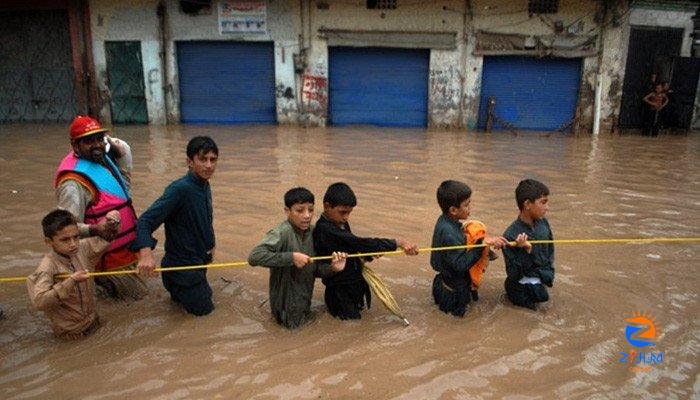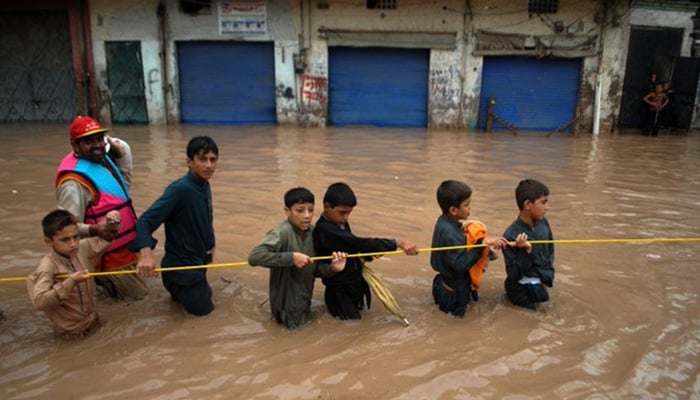
[ad_1]
QUETTA: The provincial capital of Balochistan was effectively cut off from the rest of the country after the ongoing torrential rains severed all sorts of communication lines, as well as land and air traffic routes.
The power breakdown in the city, which occurred last night, caused the shutdown of the internet and mobile phone services, hampering rescue efforts.
Flight operations to and from Quetta Airport were also suspended while a key railway bridge connecting the city to other parts had also collapsed.
An official of the Pakistan Railways said the bridge collapsed near the Mach area in the Bolan district in the early hours of Thursday, which also suspended trade with Afghanistan, Iran and Turkiye. Authorities have launched efforts to repair the bridge that was built by the British in 1885.
While the city administration has issued a flood warning in the city directing the people to contact emergency numbers 03368186794 and 03361187348 in case of need, the electricity supply cut since last night meant the top police officials and civil administration are not reachable.
Meanwhile, PDMA official Faisal Tariq said that hundreds were stranded due to floods after the incessant rains, but rescue efforts were underway to take people to safe places.
Death toll nears 1,000
According to a National Disaster Management Authority report, 34 more people died during the last 24 hours, taking the death toll to 937 across the country during this monsoon season while 1,343 were injured.
The report stated that 670,000 houses were damaged while nearly 800,000 animals died in the floods. It added that Tarbela Dam is filled to capacity while Chashma Barrage was about to be filled.
National emergency
While declaring the massive damage caused by the ongoing heavy rains and flash floods to public life and property in the country a climate-induced humanitarian disaster, the cash-strapped federal government on Thursday urged the international community to come forward to help it for the relief of calamity victims.
“Though [we are] mobilising resources to cope with the heavy monsoon flooding, we are painfully aware that there is a distressing gap between resources and rescue operations and the number of people in need of urgent shelter.
“With 33 million people affected by the disaster, we will need international humanitarian assistance to provide them with a modicum of relief and food security for now,” Federal Minister for Climate Change Sherry Rehman said at a presser conference in Islamabad.
She said the NDMA was conducting a needs assessment with the federal government working to send out a UN flash appeal for humanitarian response to the calamity.
“Our federal and provincial governments are running out of resources as it is not within the capacity of any province or the State to deal with the disaster of such epic proportions alone. We also need communication, infrastructural assistance and air support once the weather settles,” she said.
Sherry said the country has suffered from the “worst humanitarian disaster of the decade”, which caused a large-scale loss of lives, property and livelihoods.
“Overall, we [Pakistan] received 241 per cent more rains than average this month with a 496 percentage increase in Balochistan, 784pc in Sindh, 172pc in Gilgit-Baltistan, 56pc in Punjab and 33pc in Khyber Pakhtunkhwa,” she said, putting the nationwide death toll from the calamity at over 900.
The minister said the need for shelter and relief was dire as conveyed by the provinces but the situation was still evolving and every day the needs assessments were changing as the rains didn’t stop causing floods. She said the homeless people’s numbers were growing with Sindh asking for one million tents and Balochistan 100,000.
[ad_2]
